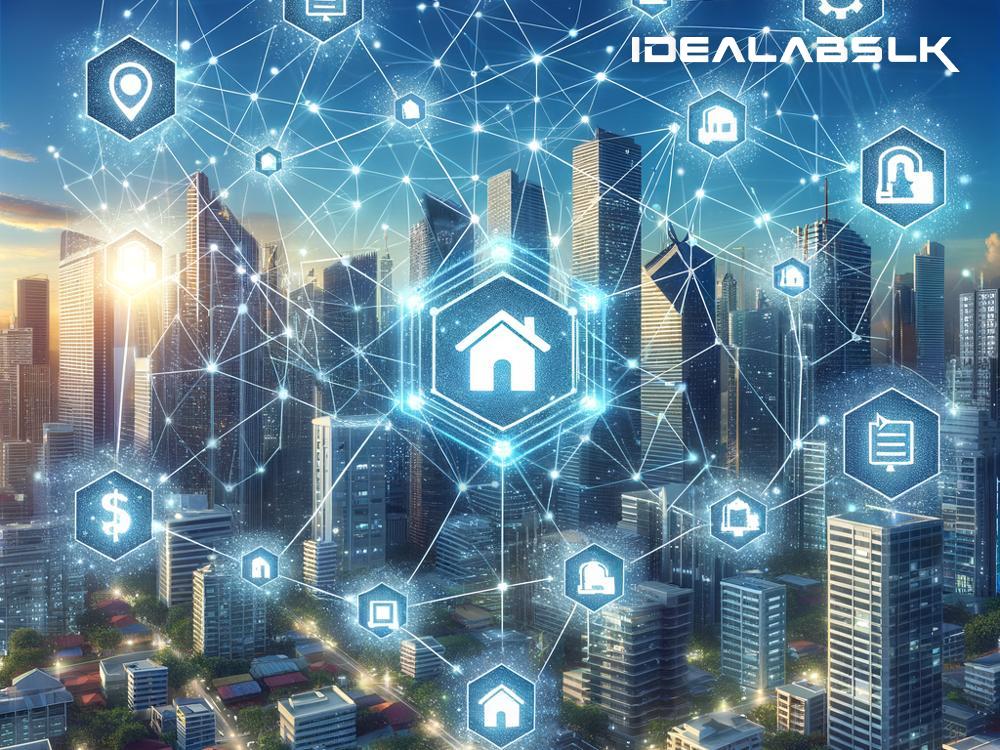Blockchain Technology for Real Estate Transparency: A Beginner's Guide
In this modern era, the real estate industry is witnessing a revolutionary shift, thanks to blockchain technology. If you've heard the buzz around cryptocurrencies like Bitcoin, you're already somewhat familiar with blockchain. But did you know this technology has the potential to transform the real estate sector completely, making it more transparent, efficient, and trustworthy? Let's break down this complex technology into simple terms and explore its impact on real estate.
What is Blockchain Technology?
Imagine a ledger or a record book that's not held by one person but is distributed across numerous computers around the world. This ledger records transactions in blocks, and once a block is filled with transactions, it's added to a chain of previous blocks. Hence, the term "blockchain." This chain provides an unchangeable record of transactions that is transparent and accessible to everyone but secure from tampering, thanks to complex cryptographic principles.
Transforming Real Estate with Transparency
Traditionally, real estate transactions have been shrouded in layers of opacity. From the history of property ownership to the authenticity of documents, many aspects have been hard to verify, leading to fraud, disputes, and a general lack of trust. Here’s how blockchain is changing the game:
1. Clear Property Titles:
Every property has a history - who owned it, who sold it, and when. Blockchain can hold this data securely and permanently. This means anyone can check the ownership history of a property transparently, reducing fraud and disputes over titles.
2. Streamlined Transactions:
Buying or selling property involves a lot of paperwork and middlemen, from lawyers to real estate agents, making the process time-consuming and costly. Blockchain introduces smart contracts - self-executing contracts with the terms of the agreement directly written into lines of code. These can automate and accelerate the process, making transactions faster, cheaper, and less reliant on intermediaries.
3. Reduction in Fraud:
Fraud in real estate, such as forging documents or selling property that doesn't belong to the seller, has been a significant issue. Since blockchain provides a permanent and unchangeable record of every transaction, it becomes nearly impossible to manipulate data, drastically reducing the chances of fraud.
4. Improved Liquidity:
Real estate is known for being a fairly illiquid asset since selling properties can take months. Blockchain can enable tokenization of property, dividing it into shares that can be easily bought and sold. This enhances liquidity, allowing investors to buy into real estate much like they would buy stocks.
5. Enhanced Access:
Blockchain can democratize real estate investments, making it accessible to more people. Through tokenization, even smaller investors can own a piece of property, which was previously difficult due to high entry barriers.
Real-World Applications
Various initiatives and startups are already bringing blockchain into the real estate world. For example, some companies are working on creating global property registries on blockchain to solve the issue of opaque property titles. Others are developing platforms where people can buy and sell property tokens, thereby increasing liquidity and access.
Challenges Ahead
While the potential is immense, this revolution won't happen overnight. Regulatory hurdles, the technological literacy required to interact with blockchain platforms, and the large-scale adoption needed for its benefits to fully materialize are significant challenges. However, as technology evolves and more people understand its benefits, these barriers are likely to diminish.
Embracing a Transparent Future
Blockchain technology offers a promising future for the real estate sector, a future where transparency, efficiency, and trust dominate. While we're still in the early stages of this transformation, the potential benefits make it an exciting area to watch. As with any technological advancement, there will be hurdles to overcome, but the blueprint for a more transparent and accessible real estate market is becoming increasingly clear, thanks to blockchain.
Blockchain technology is not just a buzzword; it's a tool that possesses the power to overhaul the very fabric of real estate transactions, fostering an environment where clarity, authenticity, and fairness are the norms. Whether you're a buyer, seller, investor, or just an interested observer, the journey of blockchain within the real estate industry is something to keep an eye on as we move towards a more transparent, efficient, and inclusive future.

